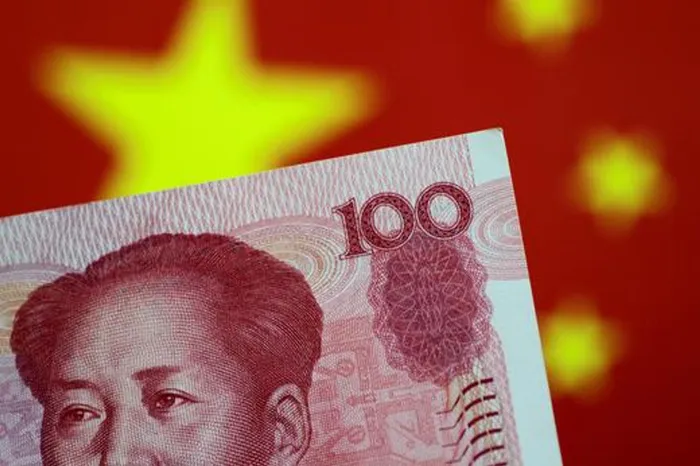SA’s markets pull back as World Bank cuts China’s growth outlook while Ramaphosa’s win eases policy concerns

A China yuan note is seen in this illustration photo. Photo: Reuters
South African markets fell to near one-month low yesterday, following their emerging counterparts after the World Bank slashed its growth outlook for China, the world’s second largest economy.
The World Bank yesterday said the growth outlook in China, South Africa’s largest trading partner, was subject to significant risks emerging from nearly three years of “zero-Covid” curbs and a real estate slump.
In its latest forecast yesterday, the World Bank cut China’s expected growth for 2022 to 2.7%, down from 4.3% previously forecast in June.
World Bank country director for China, Mongolia and Korea, Mara Warwick, said China’s growth outlook was subject to significant risks, stemming from the uncertain trajectory of the pandemic, of how policies evolve in response to the Covid-19 situation, and the behavioural responses of households and businesses.
“Continued adaptation of China’s Covid-19 policy will be crucial to mitigate public health risks and minimise further economic disruption,” Warwick said.
“Accelerated efforts on public health preparedness, including efforts to increase vaccinations especially among high-risk groups, could enable a safer and less disruptive re-opening.”
Warwick also said persistent stress in the real estate sector could have wider macroeconomic and financial spillovers.
However, the bank said China’s growth will recover to 4.3% in 2023, amid a reopening of the economy.
The JSE All Share Index fell by 1.9% to around 71 60 points, the lowest since November 21, in line with its global peers which also struggled to gain traction amid a weakened outlook in the Asian markets.
Emerging markets were also weakened by a surprise shift in the Bank of Japan’s monetary policy as it decided to allow the 10-year bond yield to move 50 basis points either side of its 0% target, wider than the previous 25 basis point band, in a move aimed at easing some of the costs of prolonged monetary stimulus.
Major intraday losses on the JSE were recorded in the minerals and resources sector, with Montauk Renewables plunging 9.7%, Sasol falling 5.9%, with South32 and Impala Platinum also losing 3.4% and 2.7%, respectively.
The rand also weakened to around R17.40 against the US dollar yesterday, after a nearly 2% jump on Monday when President Cyril Ramaphosa was re-elected as leader of the governing ANC.
The rand found some respite on Monday, gaining 1.5% against the dollar as Ramaphosa’s win eased some concerns around South Africa’s political uncertainty.
10X Investments product development specialist, Kelin Pottier, said Ramaphosa’s convincing re-election raised hopes that an “emboldened” president would be able to push ahead with his reform agenda, while a defeat would have threatened the continuation of current policies.
Pottier, however, said that the road ahead was still potentially rocky, even a little treacherous, with a Cabinet reshuffle expected soon while there was also the lingering Phala Phala scandal.
“It seems unlikely that the ANC will take a more populist turn in its policies and government spending, which is what was feared would happen had the RET faction won the vote and, therefore, greater control of the party,” Pottier said.
“Although the ANC has used its numbers to quash the Phala Phala Report in Parliament, a question mark on Ramaphosa’s staying power remains, as criminal prosecutions from the Hawks and the South African Revenue Service cannot be ruled out,” he said.
BUSINESS REPORT